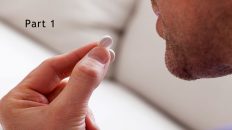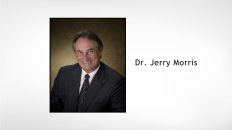By Jerry Morris, PsyD, MsPharm, MBA
MB:
Often very overlooked stress, nutrition, sleep, exercise; we know all these things have a significant effect on our brains and our nervous systems. For ADHD, how big is this color splotch on our treatment palette?
JM:
Yes, that’s very important. Because I would estimate from my reviews of the research and 40 years of clinical experience that lifestyle has about a one-third effect also. So, this is another big window into how the personality, the brain, the mind, the body works and how it morphs in a positive or a negative direction. So that when you look at studies on ADHD, you find many studies that show that nutrition matters and has a positive effect if you organize it correctly. It shows that exercise has a significant effect. And especially, with certain people with this disorder, it shows that stress management all the way from your design of your day, your activities, your recreation, your associates has a big effect. So, that right up there with psychotherapy, lifestyle intervention should be in every scientifically-devised and validated treatment for ADHD.
MB:
Excellent. And of course, some of these things will overlap and each individual is going to be different in terms of exactly what’s going on with them, which is part of the core of lifestyle medicine, the individualization concept. Another area that’s really important and we want to get on this palette is learning. How big is learning on this palette and what is it made up of?
JM:
That’s important that you brought that up, ’cause there is significant research showing that interventions of learning really do make a big difference in brain, mind, personality and even body morphing in a positive or negative direction. So that for instance, the studies on ADHD programs in school settings show that some of these ADHD patients and kids really respond very positive to it. None of these techniques, all individuals respond, because you have those genetic variations of how quickly we learn or change our personality or how quickly nutrition or things affect us. But I would estimate that from my reviews of the literature in clinical experience, these educational interventions.
JM:
And I would include with that church, sports teams and Sunday school, and any of those learning-based approaches, going back to graduate school if you’re an adult ADHD, those I consider educational, organized interventions to change the brain, the body, the mind. And I would estimate those interventions are at about 20% of magnitude of effect, so they certainly merit inclusion in any appropriate comprehensive treatment for ADHD, and in fact that’s what the studies show. Some of the top literature shows that you should have even these manualized education interventions as a part of an ADHD program.
MB:
Excellent. And of course, in that category also, as far as how the brain learns would be our modern media, video games, stimulation that is coming into the brain and teaching the brain what to expect of the world and how to interact with it.
JM:
That’s right. And also I would put in that whole class, parenting, parent education. Those packages have really shown to have some significant magnitude of effect in people with ADHD. And I’ll point out that you’re exactly right. One size doesn’t fit all. All of these windows of opportunity for change and evolution or devolution, really will vary in terms of their acceptability and magnitude of effect for different individuals and different families.
MB:
Excellent. So, our palette is mostly full. The only thing left really is medication, and there’s not much space left for that. How big of an effect, how big of a role, does the science support that medication should play on average?
Changes in hyperactivity and temperament in behaviourally disturbed preschoolers after parent-child interaction therapy (PCIT). Nixon RDV. Behav Change. 2001;18(3):168-76.
The Influence of Health Behaviours in Childhood on Attention Deficit and Hyperactivity Disorder in Adolescence. Wu X, Ohinmaa A, Veugelers PJ. Nutrients. 2016;8(12):788. doi:10.3390/nu8120788.
Family Centered Approach to Planning and Measuring the Outcome of Interventions for Children with AttentionDeficit/Hyperactivity Disorder. Cunningham C. E. (2007). J Pediatr Psychol. 32(6):676694.
Consultation-Based Academic Intervention for Children With Attention Deficit Hyperactivity Disorder: School Functioning Outcomes. Jitendra AK, DuPaul GJ, Volpe RJ, Tresco, et al. Psychology Review; Jun 2007; 36, 2; PsycINFO pg. 217.





